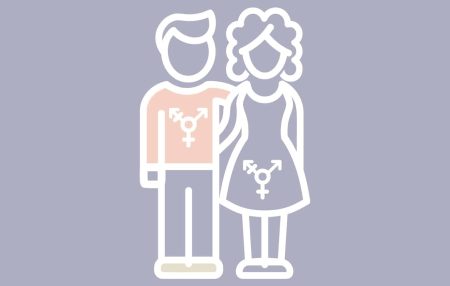22 July 2022
On average, women in the UK live longer than men, but they spend a significantly greater proportion of their lives in ill health and disability compared with men. On Wednesday 20 July 2022, the government therefore published its first ever Women’s Health Strategy for England. This is a much needed step forward to address the gender healthcare gap, recognising there has been a male orientated approach up until now in research and clinical trials, education and training for healthcare professionals as well as in the creation and delivery of healthcare policies and services.
The gender healthcare gap
While women make up 51% of the population, historically the healthcare system has been created by men, for men. Research found that many women did not feel adequately listened to or catered for and that many struggled to access healthcare that met their health and reproductive needs, including accessing maternity care or basic services such as contraception. Research also found that women were often told that heavy and painful periods were ‘normal’ and that they struggled for years to secure a diagnosis for endometriosis. Furthermore, research found that women often lacked access to high quality information about women’s health issues so that they could access contraception that best suited them. Moreover, research identified the significant impact of women’s health issues at work and in daily life due to heavy periods and undergoing fertility treatment, miscarriage and menopause.
Research also highlighted significant gaps in medical data and evidence bases, resulting in a lack of understanding about medical conditions that only affect women, like menopause and endometriosis, and how diseases like cardiovascular disease or mental health conditions impact women differently from men.
Aims of the Women’s Health Strategy for England
Over the next 10 years, the Women’s Health Strategy for England therefore aims to improve health outcomes for all women and girls, and radically change the ways the healthcare system engages with and listens to them. In doing so, it recognises that success in this regard will require long-term cultural and system changes to bring about a new life course approach to better deliver preventative health interventions instead of focussing on the treatment of a single medical issue or condition.
The Women’s Health Strategy is accompanied by the appointment of the government’s first Women’s Health Ambassador for England, Professor Dame Lesley Regan. Her role is to deliver the Women’s Health Strategy, promote women’s health agendas, tackle deep seated gender biases and implement change to close the gender health gap.
In delivering the Women’s Health Strategy, it sets out priority areas related to specific conditions or aspects of health including:
- Menstrual health and gynaecological conditions.
- Fertility, pregnancy, pregnancy loss and post-natal support.
- Mental health and wellbeing.
- Health impacts of violence against women and girls.
- Healthy ageing and long-term conditions.
Fertility, pregnancy, pregnancy loss and postnatal support
Notably, fertility, pregnancy, pregnancy loss and postnatal support was the second most popular area for inclusion in the Women’s Health Strategy to cover a range of issues including: contraception, pre-conception health, fertility and infertility, pregnancy loss and stillbirth, birth trauma, support for expectant and new mothers and their partners and patient experience and safety. This was accompanied by calls for better education for young people about fertility and infertility, pregnancy prevention, the impact of lifestyle factors and pre-existing conditions on fertility and pregnancy outcomes, as well as calls for more information on maternal physical health after pregnancy. Furthermore, concerns were raised about the ongoing inconsistencies in equality of access to fertility treatment on the NHS across England.
Acknowledging this, the Women’s Health Strategy for England is committed to addressing the current postcode lottery for fertility treatment in the NHS across England. It is clear that patients’ access to NHS fertility treatment should only be based on clinical factors, with an end to non-clinical eligibility (e.g. restrictions based on whether a fertility patient or their partner has a pre-existing child). It also aims to remove additional barriers to IVF for female same-sex couples so that it will no longer be necessary for them to pay for artificial insemination to prove their fertility status and NHS treatment for them will start with 6 cycles of artificial insemination, prior to accessing IVF services. It is also committed to improving the evidence base and information about privately funded ‘add-on’ fertility treatments so that patients are able to make better informed decisions.
Abortion services
The Women’s Health Strategy for England is also committed to ensuring that women can continue to access robust and high quality abortion services and it plans to set outs its plans for sexual and reproductive health later this year. In doing so, it recognises that a woman’s right to safe, legal and regulated abortion is enshrined in law under the 1967 Abortion Act. The Women’s Health Strategy for England goes on to make clear that the wellbeing and safety of women and girls accessing abortion services will continue to be an important focus and priority.
Changes to close the gender health gap
There is a great deal of work to be done to close the gender health gap across England, although some changes and improvements have already started to be made, to include:
- Introduction of a pregnancy loss certificate in England, following recommendations by the independent Pregnancy Loss Review. This will help achieve some recognition for parents who experience a loss of pregnancy before 24 weeks.
- Establishing a Maternity Disparities Taskforce to address disparities in outcomes of care for women and babies by improving access to pre-conception and maternity care for women from ethnic minorities and those living in deprived areas, investing £127 million to increase and support NHS maternity services and expand neonatal capacity, plus a further £95 million to recruit a further 1,200 midwives and 100 consultant obstetricians.
- Publication in February 2022 of a plan to reduce waiting times, drive efficiency and innovation and improve patient experience across all medical specialities, including gynaecology and urogynaecology to address the Covid-19 backlog of care.
- Establishing a UK Menopause Taskforce to improve healthcare support for women, improve understanding amongst the public and among healthcare professionals and support in the workplace, as well as look at research to address gaps in evidence bases.
- Reducing the cost and improving access to hormone replacement therapy (HRT) by improving support for the HRT supply chain and by way of a new HRT pre-payment certificate which will be introduced in April 2023.
- Improving women’s reproductive wellbeing at work through the Health and Wellbeing Fund form 2022 – 2025, to support voluntary, community and social enterprise organisations to develop projects to support reproductive health issues, pregnancy loss, menopause so they can remain or return to the workforce.
- Investing £302 million in family hubs and the start for life programme, to establish a network of family hubs in 75 local authorities across England, tailored parent-infant relationship and perinatal mental health support and the creation of breastfeeding support services.
- Introduction by the General Medical Council (GMC) of specific assessments on women’s health for medical students, including on menopause, obstetrics and gynaecology to improve doctor’s understanding of women’s health.
- The introduction in 2020 of compulsory RSHE in schools to improve knowledge of female health conditions among both girls and boys. Students are now taught about specific women’s health issues, including menstruation, contraception, fertility, pregnancy, and the menopause to improve understanding and reduce stigma and taboos surrounding these topics.
- Publishing the National Autism Strategy to address the under-identification of autism in women and girls, as well as the additional health and care disparities they may face throughout their lives. Leading in 2021 to 2022 to an investment of an additional £13 million in funding to test and improve different diagnostic pathways for women and girls, with a further investment of £2.5 million to test and implement the most effective autism diagnosis pathways for children and young people in 2022 to 2023. Also investing a further £1.4 million to trial and develop mandatory training in learning disability and autism, to ensure health and social care staff have the appropriate skills and knowledge to provide safe, compassionate, informed care.
Fertility and family law advice
Aside from the delivery of better healthcare strategies to meet the health and reproductive needs of women across England, specialist fertility and family law advice also helps navigate fertility treatment and family building outcomes and place day-to-day family life on a firm footing. It can create a bespoke family building legal and practical action plan to help preserve and maximise individual fertility, understand options and make better informed decisions about conception, family creation, biological identity and legal rights for fertility patients, parents, children and families. It also helps effectively navigate many complex fertility and family law issues, including:
- Legal issues and options where women face rapidly declining age-related fertility and loss of opportunity for conception (e.g. fertility preservation and maximisation, management of existing personal relationships and implications of using donor gametes).
- Difficulties with storage/use of frozen eggs, sperm and embryos in fertility treatment.
- Issues associated with import of frozen gametes and embryos into the UK for use in fertility treatment and surrogacy (e.g. due to anonymous and commercially obtained gametes and embryos which engage UK public policy restrictions).
- Issues associated with the export of frozen gametes and embryos abroad for use in fertility treatment and surrogacy (e.g. lack of consent).
- Acquisition of legal parentage following a domestic or international surrogacy arrangement.
- Acquisition of legal parentage following a known donor arrangement.
- Acquisition of legal parentage following a co-parenting arrangement.
- An application to bring or defend a Declaration of Parentage (e.g. following a direct-to-consumer DNA test or to re-register a birth certificate).
- An application to bring or defend a step-parent adoption order.
- An application for an order to recognise a foreign adoption under English common law.
- Unexpected death of a loved-one and related issues associated with posthumous storage and use of eggs, sperm and embryos in fertility treatment (e.g. due to an accident or illness).
- Care and upbringing of children following a dispute with an ex-partner, parent, donor or surrogate.
- Legal parentage disputes with an ex-partner, donor, co-parent, step-parent, surrogate.
- Legal parentage disputes with a UK fertility clinic (e.g. problems and omissions with HFEA consent forms).




